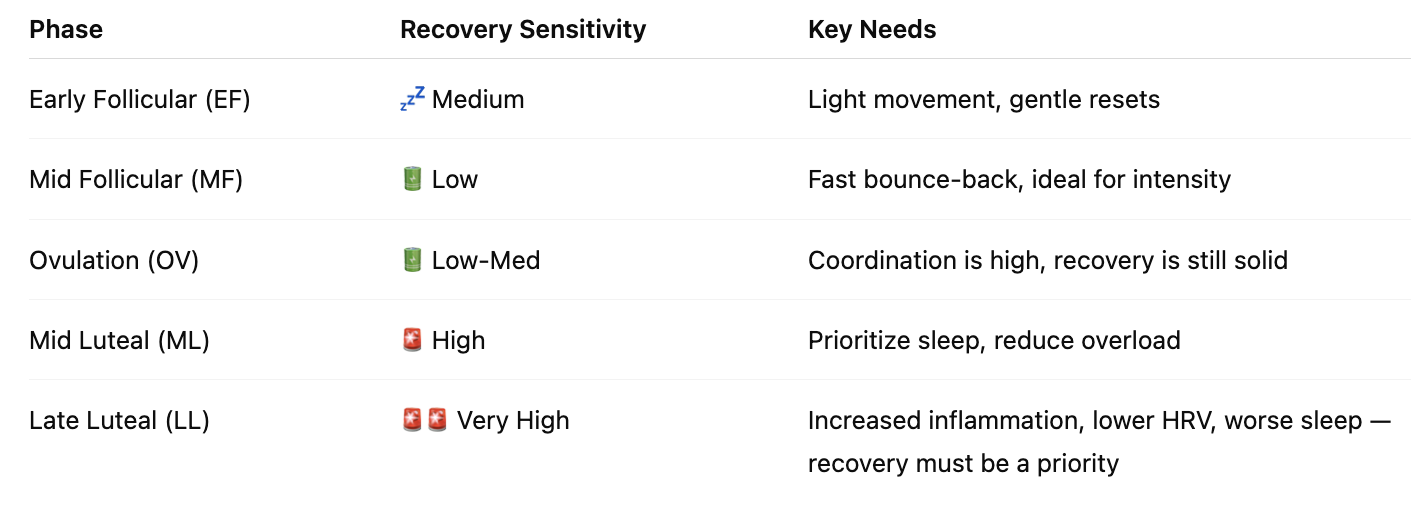While most recovery protocols focus on sleep, protein, and foam rolling (all good things!), they often leave out a key variable: your hormones. For women, the recovery equation isn’t static. It changes across the cycle — and if you’re not adjusting, you’re probably missing critical gains.
Recovery Is Hormonal (Even If Your Coach Hasn’t Said It Yet)
Each menstrual phase alters your nervous system, core temperature, inflammation levels, and sleep quality. Which means the recovery your body needs on Day 7 is not the same as on Day 24.
The Cycle-Based Recovery Cheat Sheet:

📚 Science Says:
- Sato et al. (1995) found progesterone reduces REM sleep, making recovery less restorative in luteal phases.
- Shaffer & Ginsberg (2017): HRV interpretation must be adjusted for sex-based autonomic patterns.
Top Recovery Mistakes Women Make
- Using the same recovery plan year-round.
Hormonal shifts = changing recovery demands. - Ignoring LL-phase fatigue as “mental weakness.”
It’s not. It's biology. And pushing through can backfire. - Tracking HRV without context.
Your HRV might dip before your period — that’s normal. What matters is how and when it rebounds.
Recovery Tools Women Should Actually Use
☀️ Infrared light or warm baths: Offset late-luteal inflammation
🥄 Magnesium-rich snacks: Support deeper sleep in the ML phase
🧘♀️ Down-regulation training: Like box breathing or yoga nidra
🛌 Sleep banking: Prioritize earlier bedtimes in the LL phase
📉 Adjusted workload: Shift focus from volume to quality during high-sensitivity phases
📲 How Wild.AI Builds Smarter Recovery for Women
Wild.AI translates hormonal shifts into real-world recovery planning:
- Flags high-stress phases before burnout hits
- Adjusts workout intensities to match biological readiness
- Guides nutrition and sleep protocols based on cycle data
Because your recovery should support your hormones — not ignore them.

